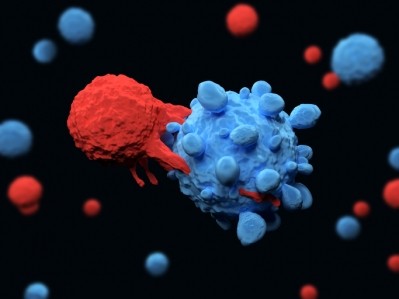UK lines up training course for hospital and healthcare staff on ATMPs

The educational initiative starts with an introductory course to advanced therapy medicinal products (ATMPs) and runs December 5-6, 2022. It is aimed at frontline healthcare practitioners and involves fully state-of-the-art training including virtual reality.
The training session will cover basic cell biology that underpins ATMP medicines, technologies that are used to create ATMP medicines, differences between point of care and centralized manufacturing and implications on delivery to the patient, sources of risk in delivering cell products to the clinic, and an overview of the GMP manufacturing facility.
“ATMPs are clinically progressing towards routine healthcare delivery, and the supply chain including manufacturing is gearing up for commercialisation. However, frontline healthcare staff still need to be trained on the manufacturing and administration of these therapies to patients. National and international standardisation of training for hospital and healthcare staff to apply this new class of medicines will be vital,” said Professor Ivan Wall, Centre for Advanced Therapies Manufacturing Training, University of Birmingham.
To date, standard education pathways for frontline healthcare staff in the UK’s NHS and many other countries have not included the manufacturing and administration of ATMPs. The University of Birmingham courses, said the education provider, will provide the opportunity for NHS primary care trusts to update the skills across NHS staff for when ATMPs are rolled out in routine healthcare across the UK. The courses are aimed at producing a skilled workforce of frontline staff that are fully trained to handle ATMPs as each are approved, it added.
VR component speeds up pace of learning
The virtual reality element of the December course has been designed by FourPlus, an immersive technology company, specialising in state-of-the-art software solutions for the medicines manufacturing community, said the organizers.
“This enables course participants to experience hands-on virtual reality simulations in GMP competences, compliance, cleanroom operations, and run through specific procedures, such as those for healthcare facility biological spillages. The virtual nature enables the creation of biological spillages in virtual rather than actual healthcare facilities. As a result, if mistakes are made the training can simply be reset and restarted. In addition, the virtual element of the manufacturing condenses and accelerates training where each step can be conducted immediately one after the other. This enables a week’s manufacturing operation to be trained within a single day.”
Coordination and standardisation of ATMP education
The Centre for Advanced Therapies Manufacturing Training, located at the University of Birmingham, is part of the Advanced Therapies Skills and Training Network (ATSTN), which also encompasses three dedicated formal UK national training centres based at the National Horizons Centre, Teesside University and RoslinCT, Edinburgh.
The ATSTN is coordinated by the UK’s Cell and Gene Therapy Catapult, the independent cell and gene therapy innovation and technology organisation.
Whilst the need to educate the healthcare sector on the administration and delivery of the new therapies to patients remains high, there is a requirement for more training centres across the UK and internationally, according to those stakeholders. However, there is also a need for coordination and standardisation for those delivering the training to healthcare staff. The ATSTN has been set up to standardise the education programs for manufacturing, administration, and delivery of advanced therapies in the UK.










